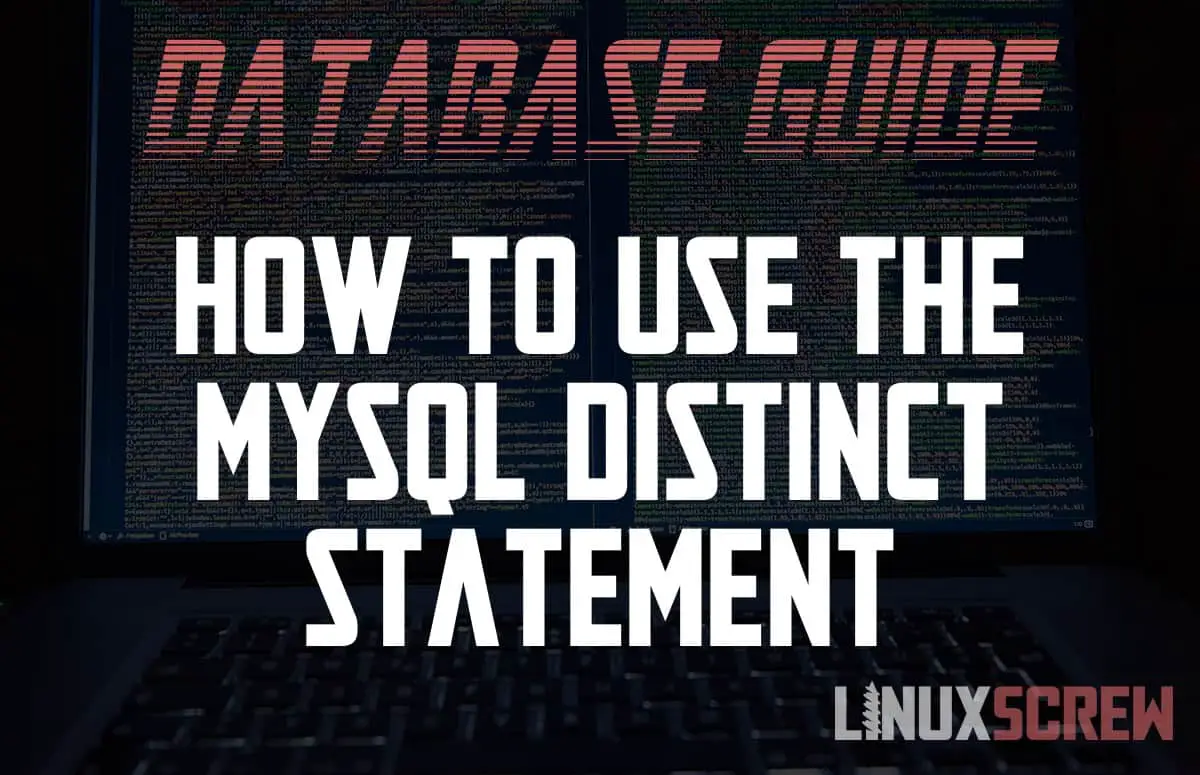The MySQL DISTINCT operator returns only unique values from a column from a database table; duplicates are not returned. Here’s how to use it.
The DISTINCT operator can be useful in many scenarios; for example, you may want to generate a list of countries you have shipped to, or you may want to provide a drop-down menu containing unique product options for the user to select.
Example Usage of MySQL DISTINCT
Examples will use the following table:
table_orders:
| order_id | shipping_country | product_category |
|---|---|---|
| 1 | Australia | soap |
| 2 | China | candles |
| 3 | India | candles |
| 4 | Indonesia | soap |
| 5 | Australia | soap |
| 6 | China | soap |
| 7 | Australia | candles |
To get a list of countries that have been shipped to, without duplicates, run the following query:
SELECT DISTINCT shipping_country FROM table_orders;
…which will result in:
| shipping_country |
|---|
| Australia |
| China |
| India |
| Indonesia |
Counting Unique Values in a Columns
If you want to know how many distinct/unique values there are in a table’s column:
SELECT COUNT(DISTINCT shipping_country) FROM table_orders;
…which will result in:
| COUNT(DISTINCT shipping_country) |
|---|
| 4 |
Using DISTINCT with Multiple Columns
You can use the DISTINCT statement to SELECT from multiple columns – the combination of the values will be used to generate the unique results:
SELECT DISTINCT
shipping_country, product_category
FROM
table_orders
;
…which will return:
| shipping_country | product_category |
|---|---|
| Australia | soap |
| China | candles |
| India | candles |
| Indonesia | soap |
| China | soap |
| Australia | candles |
As you can see, only unique combinations of the two columns passed to the DISTINCT statement are shown.
If you’re using MySQL with PHP to build apps – why not consider a PHP framework like Laravel?

